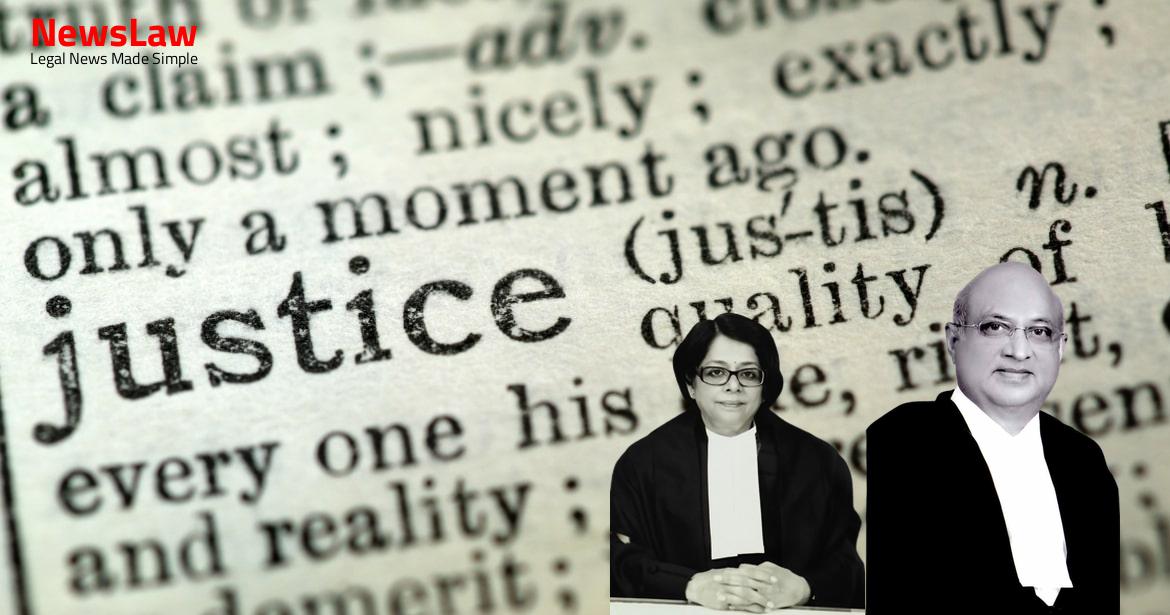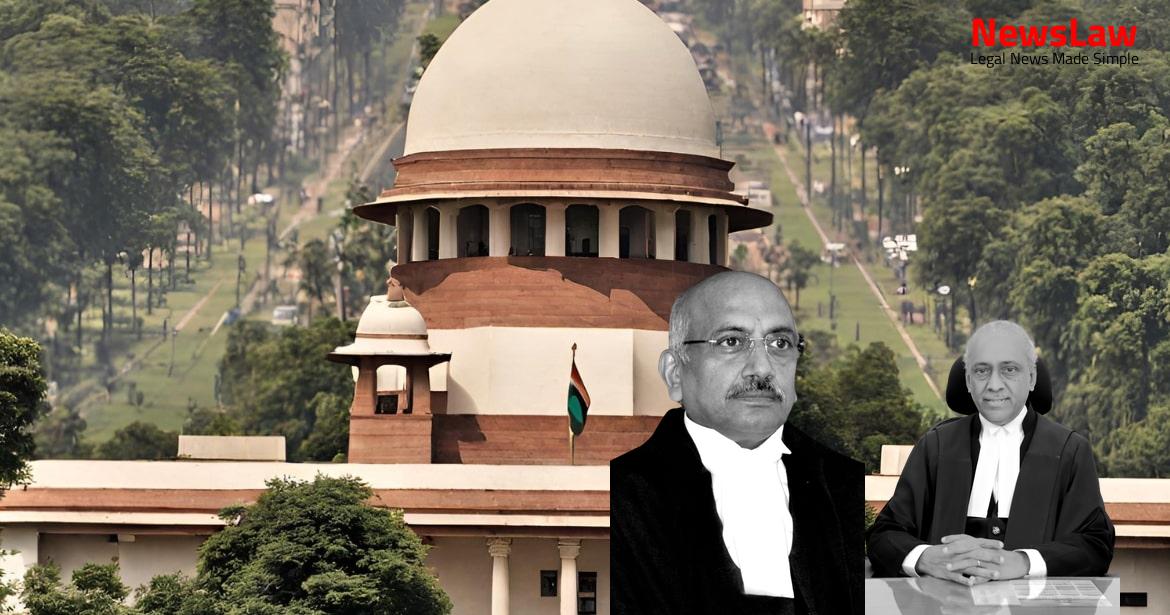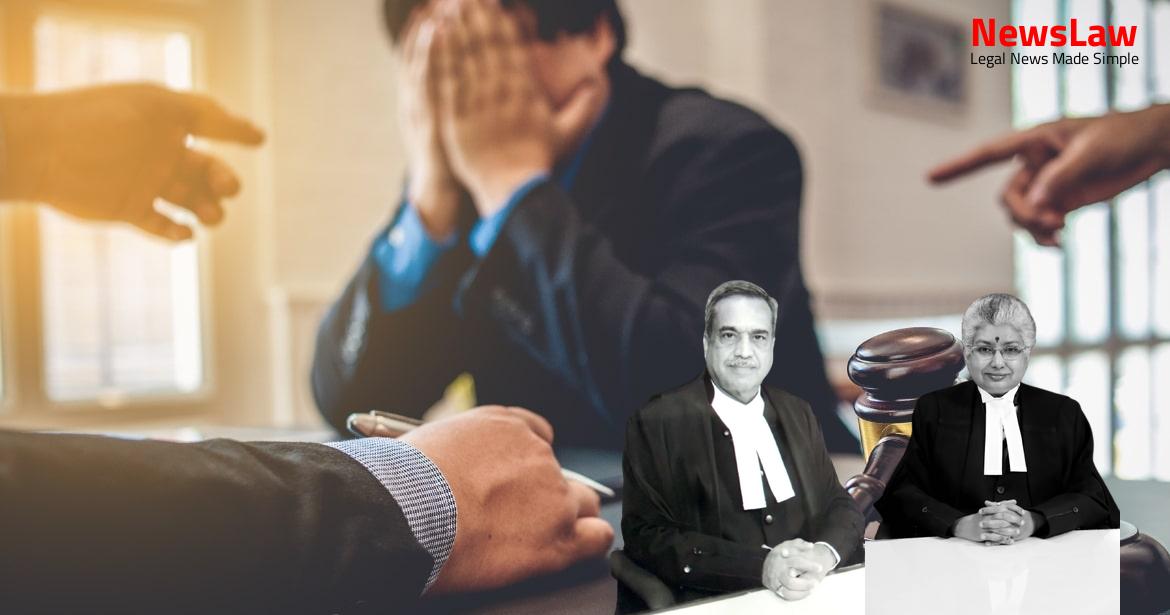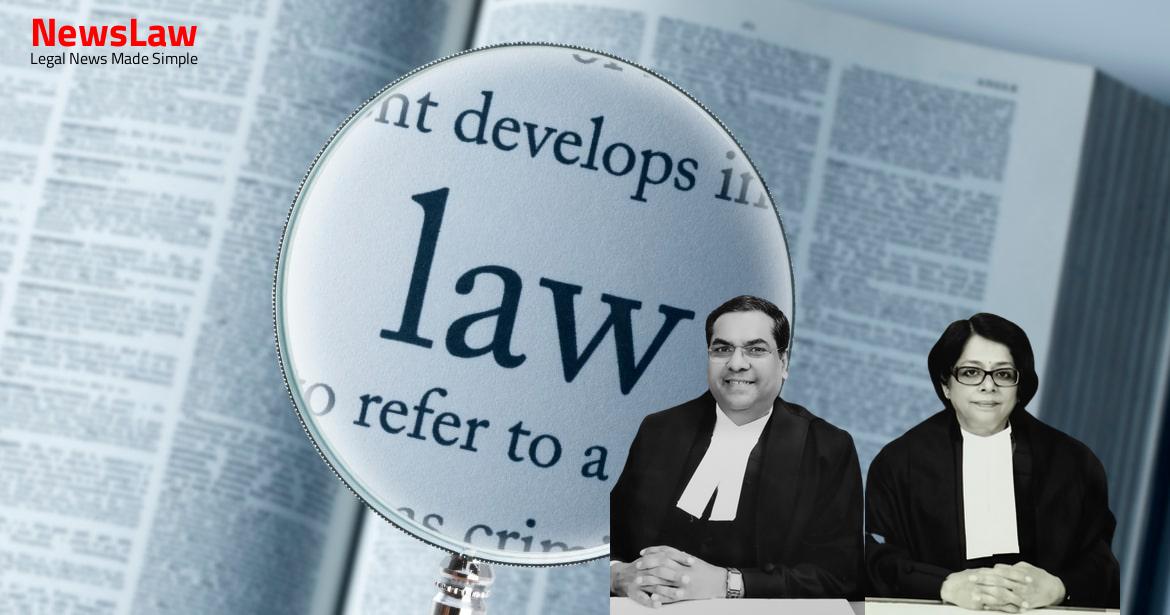A significant legal case involving the constitutional validity of Section 35AC under the Income Tax Act, along with the dismissal of the petition by the High Court, has been decided by the Supreme Court of India. The case delves into the implications of sub-section (7) of Section 35AC and its impact on tax deductions for charitable activities. Stay informed on this crucial development in tax law.
Facts
- Appellant received donations for their hospital project in three financial years: 2015-16, 2016-17, and 2017-18.
- The challenge was on the ground that sub-section (7) of Section 35AC is essentially prospective in nature and should not apply to projects approved before its insertion.
- The Revenue supported the insertion of sub-section (7) in Section 35AC, arguing that it is prospective and discontinues deductions only from the assessment year 2018-2019 onwards.
- Appellant’s deduction benefit was discontinued from the assessment year 2018-2019 due to insertion of sub-section(7) in Section 35AC by the Finance Act, 2016.
- The appellant questioned the constitutional validity of sub-section (7) of Section 35AC, arguing that once approved, the benefit should not be withdrawn due to the new subsection.
- The High Court dismissed the petition filed by the appellant on 14.09.2017 in SCA No.7558 of 2017.
- The appellant is a Charitable Trust registered under the Bombay Public Trust Act, 1950, and commenced their hospital project in 2014.
- An application was filed under Section 35AC of the Income Tax Act in 2014 for grant of approval to the hospital project, along with several other applicants.
- A notification issued on 07.12.2015 mentioned the approval of 28 projects as ‘eligible projects’ under Section 35AC of the Act.
Also Read: Supreme Court Judgement: High Court’s Order Upheld in Case of [Respondent] v. [Petitioner]
Arguments
- The appellant’s counsel reiterated the submissions made in the High Court.
- Argued that the appellant and assesses should be allowed to claim deduction for the financial year 2017-2018 despite changes in Section 35AC of the Act.
- Cited cases like S.L. Srinivasa Jute Twine Mills (P) Ltd. vs Union of India & Anr., Sangam Spinners vs. Regional Provident Fund Commissioner I, and CIT vs Vatika Township Pvt. Ltd. in support of the argument.
- Requested invocation of Article 142 of the Constitution to allow donation for the third financial year as per a 2015 notification.
- Urged the court to consider the unique circumstances of setting up a charitable hospital in their decision.
Also Read: Enhancement of Compensation Awarded in Motor Vehicle Accident Case: Supreme Court’s Judgment
Analysis
- The constitutional validity of any provision, especially taxing provision, cannot be struck down based on reasoning of promissory estoppel.
- Neither the appellant nor the assessee have the right to set up a plea of promissory estoppel against the legislative power exercised in inserting sub-section (7) in Section 35AC.
- The sub-section (7) was made applicable uniformly to all prospectively and not retrospectively, hence no deduction could be allowed to any assessees for the year 2017-2018 or subsequent periods.
- Lack of availability of the deduction for the year 2017-2018 has expired, as no right was accrued to the assessee for claiming this deduction.
- The benefit of deduction under Section 35AC was availed by all assessees for two financial years (2015-2016 and 2016-2017).
- A plea of promissory estoppel is not available against legislative power in a taxing statute and no vested right accrues to the assessee for tax concessions.
- The appellant received a substantial amount during the year 2017-2018 from various assessees, but this does not create a right to claim deduction.
- Out of 28 projects approved, only the appellant questioned the constitutional validity of sub-section (7) of Section 35AC.
- Equity or hardship plea is not legally sustainable in a taxing statute.
- The real aggrieved parties post insertion of sub-section (7) should have been the Donors who were not allowed to claim deduction for the financial year 2017-2018.
- The legislature’s intention was clear from the budget speech, notes on clauses, and memorandum explaining the amended provisions in the Finance Bill 2016.
- The appellant does not have locus to raise the issue as they are not an assessee under Section 35AC.
- The appellant received substantial donations in previous years, hence insertion of sub-section (7) did not cause any hardship or prejudice.
- If sub-section (7) was retrospective, deduction for 2015-2016 and 2016-2017 would have been disallowed.
- None of the assessees came forward complaining of being denied the deduction benefit due to the sub-section (7) of Section 35AC for the financial year 2017-2018.
- The doctrine of \
- There was no justification for the respondent to ignore the principle enshrined in the doctrine of \
- The respondent’s actions were arbitrary and in violation of the law
- The respondent failed to consider the principles laid down in various judgments
- Deduction under this section cannot be claimed if the same expenditure is claimed under any other provision of the Act for the same or any other assessment year.
- If the project or scheme approved by the National Committee is not being carried out as per the conditions of approval, or if the required report is not furnished, the approval or notification may be withdrawn.
- The concerned association, institution, public sector company, or local authority must be given a chance to show cause before the withdrawal of approval or notification.
- The Assessing Officer must be informed when the notification of the eligible project or scheme is withdrawn.
- In case of withdrawal of approval or notification, the total amount received by the entity in respect of which deduction was claimed shall be deemed as income.
- The National Committee can withdraw approval at any time after providing an opportunity to show cause.
- The order withdrawing approval must be forwarded to the Assessing Officer of the concerned association or institution.
- Equity and hardship do not play a role in tax matters when deciding the rights of a taxpayer versus the Revenue.
- Once an action is deemed to be in accordance with the law, especially in tax matters, the use of powers under Article 142 of the Constitution is not necessary.
- The appellant’s donors were allowed to claim deductions for the amounts paid to the appellant under Section 35AC for the financial years 2015-2016 and 2016-2017.
Also Read: Supreme Court Judgement: Settlement of Dispute after Lok Adalat Award
Decision
- The appeal raised by the Petitioner was thoroughly discussed
- No significant merits were found in favor of the Petitioner
- The appeal is dismissed based on the discussion and findings
Case Title: PRASHANTI MEDICAL SERVICES AND RESEARCH FOUNDATION Vs. UNION OF INDIA
Case Number: C.A. No.-005849-005849 / 2019



